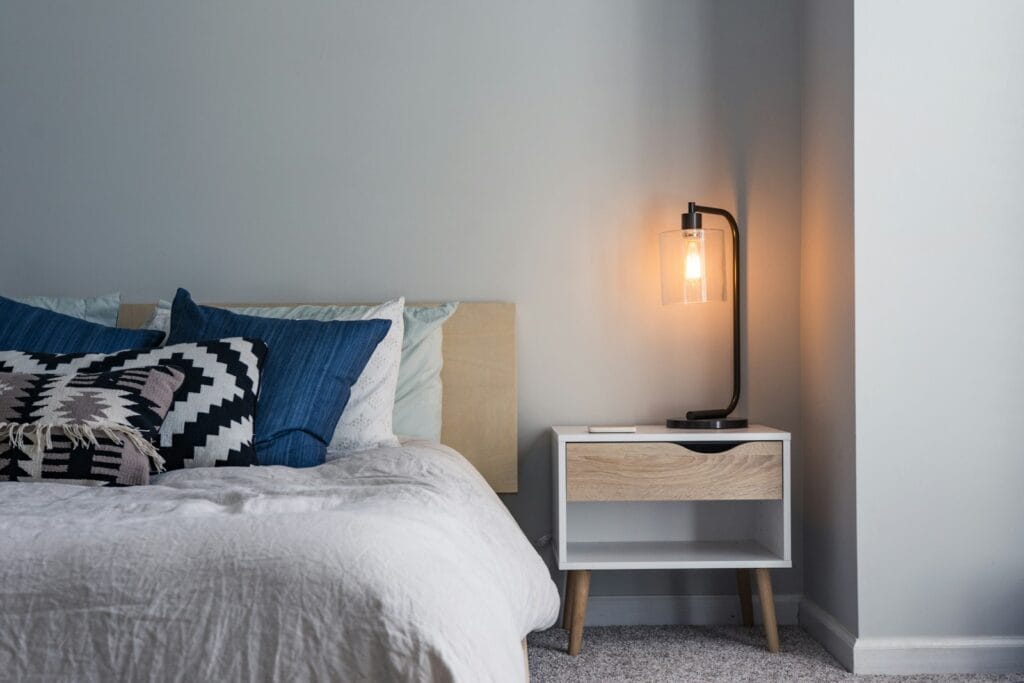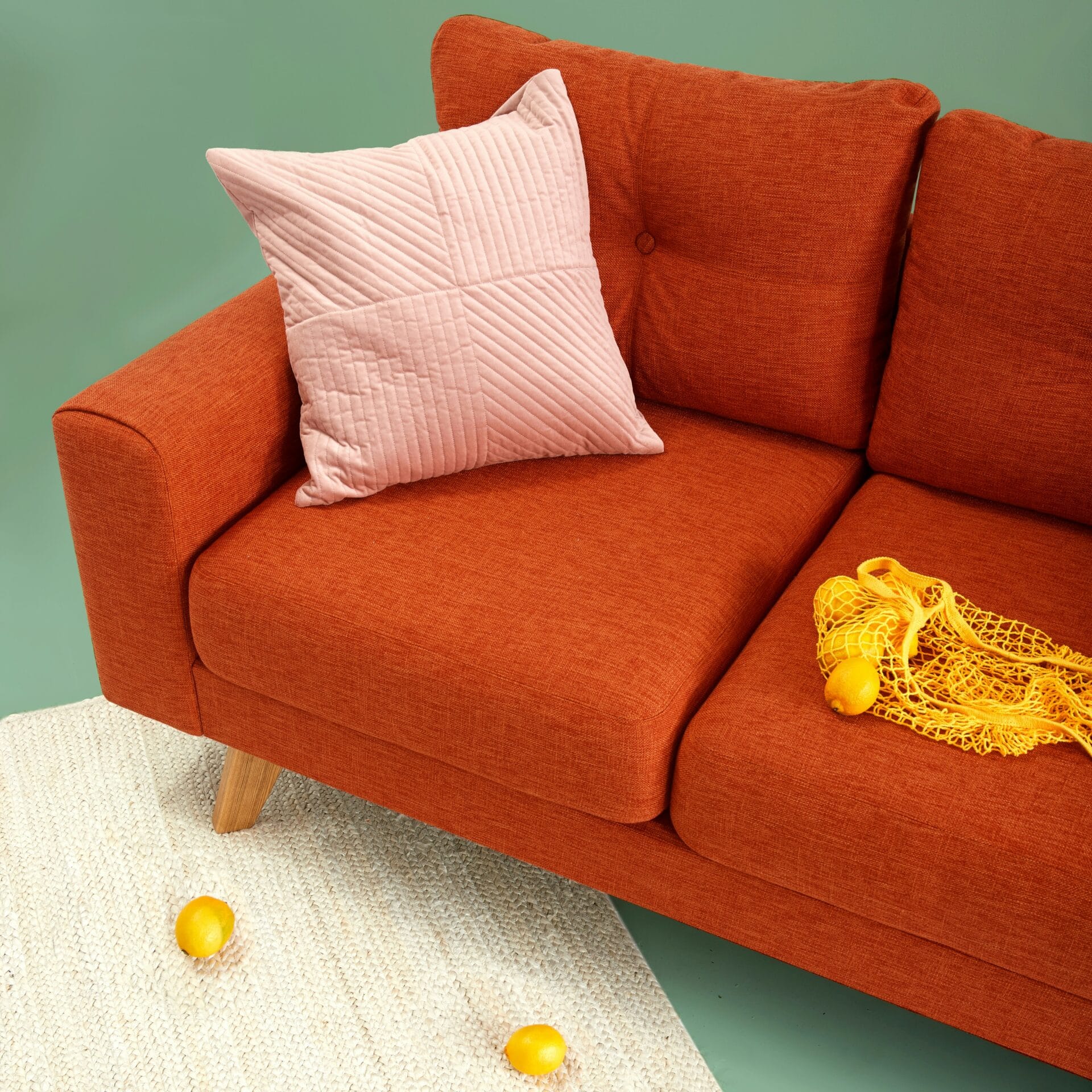Introduction to Furniture Trends in 2025
The furniture industry is on the cusp of significant transformation, propelled by changing consumer preferences, technological advancements, and urgent sustainability goals. As we approach 2025, several key trends are emerging that will shape the future of hotel furniture, healthcare furniture, and residential designs. One predominant trend is the increasing emphasis on sustainability. In response to growing environmental concerns, manufacturers are now prioritizing eco-friendly materials and production processes. This shift is expected to lead to a rise in the use of renewable and recycled resources, with furniture pieces crafted from sustainable materials being more widely demanded. Such sustainable practices not only benefit the environment but also appeal to consumers who are increasingly making conscious purchase decisions.
Another important aspect of the furniture trends in 2025 is the seamless integration of technology into design. Smart furniture solutions are gaining traction, enabling consumers to enjoy enhanced functionality in their residential and commercial spaces. For instance, hotel furniture designed with built-in charging stations and smart controls will allow guests to enjoy modern conveniences during their stays. Similarly, healthcare furniture equipped with innovative features can enhance patient care and operational efficiency in medical settings. The incorporation of technology will not just cater to convenience but will also elevate the overall user experience.
Furthermore, the increasing trend towards urbanization has prompted a shift towards multifunctional furniture. As living spaces become more compact, the demand for space-saving solutions is on the rise. Furniture that offers flexibility—such as modular designs, convertible pieces, and storage solutions—will become essential. This shift not only caters to the needs of urban dwellers but also reflects a broader societal transition towards minimalism and efficient space utilization. Collectively, these trends signify a dynamic evolution in the furniture industry, where sustainability, technological innovation, and multifunctionality will play pivotal roles.

The Role of Sustainability in Furniture Design
As we move towards 2025, sustainability in furniture design is emerging as a crucial aspect that shapes consumer preferences and manufacturing practices. The demand for eco-friendly furniture options has significantly increased, creating a shift in the focus of both manufacturers and consumers. Companies like Hongye Furniture Group are at the forefront of this transition, responding to the growing demand for sustainable products in the market.
Eco-friendly materials play a pivotal role in the future of hotel furniture and healthcare furniture design. Traditional resources are now being supplemented or replaced with sustainable alternatives, including reclaimed wood, bamboo, and recycled metal. These materials not only minimize environmental impact but also offer durability and aesthetic appeal, suitable for various settings, such as hotels and healthcare facilities. In 2025, it is anticipated that manufacturers will increasingly leverage sustainable resources that align with the eco-conscious values of modern consumers.
Moreover, innovative recycling practices are becoming more standard in the furniture industry. Rather than producing new furniture from scratch, manufacturers are focusing on refurbishing existing pieces and repurposing materials. This approach not only conserves resources but also leads to the creation of unique, one-of-a-kind pieces that reflect a commitment to sustainability. Companies like Hongye Furniture Group are incorporating these practices into their operations, ensuring that their products not only meet functional requirements but also adhere to environmental standards.
Additionally, the processes used in furniture production are evolving to reduce waste and energy consumption. Techniques such as modular production and lean manufacturing are gaining traction among furniture makers. These methods optimize resource use and minimize environmental footprints, thereby supporting a more sustainable future for the entire industry. As the trend toward sustainable furniture design continues to influence market dynamics, it is clear that the dedication of companies like Hongye Furniture Group will play a significant role in shaping the future landscape of furniture consumption.
Technology Integration: Smart Furniture Solutions
As the landscape of furniture design evolves, the integration of technology stands at the forefront, heralding a new era characterized by smart furniture solutions. This transformation is driven by innovative advancements such as the Internet of Things (IoT), biometric features, and automation, which collectively enhance user experience and convenience in various environments, including homes, offices, and healthcare settings.
IoT integration is revolutionizing how consumers interact with furniture. By incorporating smart sensors and connectivity, furniture can now communicate with users and other devices. For instance, a smart desk can adjust its height based on individual preferences or times of day, optimizing comfort and ergonomics. Furthermore, this level of interactivity extends to hotel furniture, where personalization can heighten guest experiences through automated climate controls or tailored lighting settings.
Biometric features are another significant aspect of smart furniture design. Furniture equipped with sensors can adapt settings based on the user’s biometrics, such as weight or posture. This functionality is particularly beneficial in the realm of healthcare furniture, where chair and bed designs can automatically adjust to provide support that improves patient recovery and well-being. Additionally, these smart solutions can aid healthcare professionals in monitoring patient status effectively, exemplifying how technology can enhance both user experience and service delivery.
Another noteworthy advancement is automation in furniture design. Furniture with integrated automation capabilities can perform tasks such as automatically transforming from a sitting to a sleeping position or adjusting to accommodate different activities. This adaptability is increasingly important in multifunctional spaces and is helping redefine our expectations of everyday furniture. The synergy between technology and furniture design promises a future where comfort, health, and usability are prioritized, leading to innovative products that meet the needs of diverse consumers.
Multifunctional Furniture: Meeting Urban Living Needs
As urban living becomes more prevalent, the demand for multifunctional furniture has surged. In densely populated areas, residential spaces are often limited in size, prompting consumers to seek innovative solutions that maximize functionality while maintaining aesthetic appeal. Multifunctional furniture serves as a practical response to this challenge, allowing individuals to enjoy a harmonious living environment without compromising on comfort or style.
One prime example of multifunctional furniture is the sofa bed, which provides both seating and sleeping accommodations. This dual-purpose piece is particularly beneficial for those who frequently host guests or have small apartments. Another noteworthy innovation is the extendable dining table, which can adapt to different occasions. This type of table can transform from a compact size for daily use to a larger configuration suitable for gatherings, effectively catering to varying needs without occupying excessive space.
Additionally, furniture designed for storage, such as ottomans with hidden compartments and coffee tables that open to reveal shelves, embodies the essence of multifunctional design. These pieces not only fulfill their primary roles but also address the common issue of limited storage in urban residences. Furthermore, the integration of technology into healthcare furniture has given rise to innovative solutions that enhance usability and convenience. For example, adjustable beds and smart seating can optimize patient comfort, blending functionality with therapeutic needs.
Moreover, the rise of compact home offices has led to an increase in furniture that can efficiently cater to both work and leisure. Desks that fold away or transform into dining tables exemplify this trend, meeting the diverse demands of modern consumers. As furniture manufacturers, including Hongye Furniture Group, continue to develop innovative designs, the trend of multifunctional furniture is expected to gain traction, paving the way for a more efficient and aesthetically pleasing urban living experience.
The Emergence of Health-Conscious Furniture
The growing awareness of health and wellness is driving a significant shift in furniture design across various environments, particularly in commercial spaces such as offices and healthcare facilities. This emerging trend focuses on creating health-conscious furniture that supports the well-being of its users through ergonomic designs and the use of materials that promote comfort and sustainability. A prime example can be observed in healthcare furniture, which increasingly incorporates innovative features aimed at enhancing the physical and mental health of patients and staff alike.
Ergonomic designs are fundamental to the concept of health-conscious furniture. These designs prioritize the user’s posture, movement, and overall comfort. For instance, office chairs that offer lumbar support and adjustable height can prevent long-term musculoskeletal issues among employees. Similarly, desks that allow users to alternate between sitting and standing positions contribute to better health outcomes and increased productivity. The incorporation of such ergonomic principles has become a standard expectation in both residential and commercial furniture selections.
Furthermore, environmentally friendly materials are gaining attention as consumers become more conscious of their ecological footprint. Furniture manufacturers are increasingly adopting sustainable practices by utilizing reclaimed wood, recycled plastics, and non-toxic finishes. This not only enhances the durability of the furniture but also aligns with the values of health-conscious consumers who wish to create eco-friendly spaces, thus reinforcing the importance of maintaining a healthy environment for living and working.
As the demand for health-oriented furniture continues to rise, manufacturers like Hongye Furniture Group are at the forefront of these developments. By innovating products that reflect this trend, they are catering to the evolving preferences of the market, ensuring spaces are not only aesthetically pleasing but also promote a healthier lifestyle. This fusion of health-promoting features and stylish design sets the foundation for the future of furniture trends, emphasizing the crucial link between our environments and our well-being.
Hongye Furniture Group: An Industry Leader
Established over two decades ago, Hongye Furniture Group has ascended to become one of the leading furniture exporters in China. Its remarkable journey in the furniture industry, particularly in the sectors of hotel furniture and healthcare furniture, has marked it as a formidable player in both domestic and international markets. The company prides itself on its commitment to excellence, driving its reputation as a trusted provider of high-quality furniture solutions.
Hongye Furniture Group’s extensive market presence spans various countries, making it a significant contributor to the global furniture industry. With a robust distribution network and strategic partnerships, the company has successfully extended its reach beyond borders, providing innovative furniture designs that cater to diverse client needs. From contemporary hotel furnishings to functional healthcare furniture, Hongye has consistently demonstrated versatility in meeting sector-specific requirements.
Innovation stands at the core of Hongye’s operational ethos. The company invests heavily in research and development, creating products that marry aesthetics with functionality. This commitment has enabled Hongye to remain ahead of furniture trends, addressing the evolving preferences of consumers and businesses alike. In addition to embracing traditional craftsmanship, the company has harnessed technological advancements to redefine its offerings, ensuring that each piece of furniture is not only visually appealing but also durable and practical. Clients can expect nothing short of excellence, whether they are sourcing furniture for esteemed hotels or specialized healthcare facilities.
Moreover, Hongye Furniture Group is dedicated to sustainability, implementing eco-friendly practices throughout its production processes. By prioritizing environmentally responsible materials, the company aligns itself with global movements towards sustainable living, further solidifying its position as a leader in the furniture industry. This proactive approach not only enhances the brand’s reputation but also contributes to the creation of a healthier planet, establishing Hongye as a forward-thinking entity in an ever-evolving world of furniture design.
Innovative Hotel Furniture Solutions by Hongye
As the hospitality industry evolves, so too does the demand for innovative hotel furniture that effectively combines aesthetics, functionality, and comfort. Hongye Furniture Group stands at the forefront of this transformation, offering specialized solutions tailored to the diverse needs of hotels. The furniture developed by Hongye reflects a commitment to quality and innovation while ensuring that each piece meets the unique demands of the hospitality sector.
Design elements play a vital role in creating inviting hotel environments. Hongye Furniture Group emphasizes contemporary designs that not only enhance the room’s ambiance but also provide guests with a pleasant experience. For instance, the incorporation of minimalist designs allows for more spacious and airy hotel rooms, which are increasingly sought after by travelers. Additionally, their range of hotel furniture offers options that cater to various themes, from modern chic to classic elegance, ensuring that hoteliers can find furniture that resonates with their brand identity.
Material choices are another area where Hongye distinguishes itself. The company utilizes high-quality, sustainable materials that guarantee durability and longevity. This commitment to sustainability is essential in the modern hospitality landscape, as hotels seek to appeal to environmentally-conscious clientele. Hongye’s healthcare furniture also adopts some of these principles, reinforcing its ability to adapt to diverse environments within the hospitality sector.
Customization options further enhance the appeal of Hongye’s hotel furniture solutions. Recognizing that each hotel has unique requirements, Hongye offers tailored designs that allow clients to choose dimensions, colors, and styles that align perfectly with their vision. This flexibility ensures that furniture can be made to complement specific spaces and create a cohesive look throughout the hotel. Through these innovative offerings, Hongye Furniture Group positions itself as a leader in providing functional and stylish hotel furniture solutions that elevate the guest experience.
Healthcare Furniture: A Focus on Functional Design
In recent years, the significance of functional design within healthcare facilities has become increasingly prominent. The role of healthcare furniture transcends mere aesthetics; it is vital for creating environments conducive to patient care, safety, and comfort. Hongye Furniture Group has emerged as a leader in this specialized sector, tailoring their products to meet the evolving demands of healthcare professionals and patients alike.
The furniture solutions provided by Hongye focus on several essential aspects. Firstly, safety is paramount in healthcare settings, and the company emphasizes the production of furniture that minimizes risks associated with slips, falls, and other accidents. By incorporating anti-static materials and rounded edges in their designs, Hongye’s healthcare furniture not only enhances safety but also promotes a more secure environment for vulnerable patients.
Moreover, comfort is an essential consideration in the design of healthcare furniture. Hongye Furniture Group ensures that their furniture, ranging from patient beds to waiting area chairs, is ergonomically designed to provide maximum comfort during extended use. This focus on comfort helps foster a more positive experience for patients, thereby contributing to their overall recovery and well-being.
In addition to safety and comfort, adaptability is a critical element in Hongye’s design philosophy. Healthcare spaces can often undergo rapid changes in function and configuration, necessitating furniture that can adapt to various needs. Hongye’s modular healthcare furniture supports this versatility, allowing for easy reconfiguration to meet diverse operational requirements.
By combining these functional features, Hongye Furniture Group continues to set benchmarks for healthcare furniture design. Their ongoing commitment to innovation ensures that healthcare facilities can maintain environments that are not only aesthetically pleasing but also functional, safe, and conducive to healing. This alignment with the specific needs of medical environments positions Hongye at the forefront of the healthcare furniture industry, paving the way for future advancements.
Conclusion
The furniture industry is on the brink of a transformative era as we move towards 2025. With ongoing advancements in design, functionality, and sustainability, it is imperative for furniture manufacturers, including Hongye Furniture Group, to adapt and evolve. The trends observed, such as the rise of multifunctional spaces, the increasing demand for smart furniture, and a commitment to sustainable practices, highlight a collective movement towards innovation.
Hongye Furniture Group stands at the forefront of these changes, integrating cutting-edge technology into healthcare furniture and other sectors. Their commitment to ergonomic designs ensures that furniture solutions meet the diverse needs of users, promoting well-being and comfort. As the landscape of furniture design continues to shift, the integration of health-focused solutions will be essential in providing environments conducive to productivity and relaxation.
Moreover, sustainability remains a crucial consideration in the future of furniture. As consumers become increasingly aware of the environmental impact of their purchases, the demand for eco-friendly materials and production methods will continue to grow. Hongye Furniture Group’s initiatives in sustainable practices set a benchmark in the industry, allowing them to lead in this essential movement. By prioritizing the use of renewable resources and recycling, they exemplify how furniture manufacturers can contribute to a greener planet.
Adapting to the changing needs of consumers and the demands of the marketplace will also play a vital role in shaping the future. Furniture products must be not only aesthetically pleasing but also functional and sustainable. By embracing these innovations and trends, the furniture industry, including enterprises like Hongye Furniture Group, can ensure a promising future that resonates with the evolving landscape of global living and working spaces.



